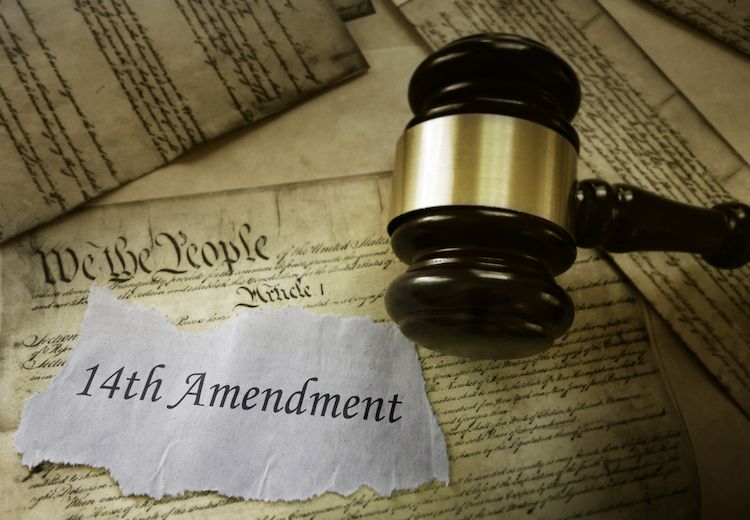Aspiring nurse convicted in 'utterly bonkers' trial can't sue for damages, full appeals court says

A would-be nurse convicted of cocaine possession in a trial in which the prosecutor moonlighted as a law clerk for the presiding judge can’t sue for damages, a federal appeals court has ruled. (Image from Shutterstock)
A would-be nurse convicted of cocaine possession in a trial in which the prosecutor moonlighted as a law clerk for the presiding judge can’t sue for damages, a federal appeals court has ruled.
In an en banc Sept. 13 opinion, the 5th U.S. Circuit Court of Appeals at New Orleans said Erma Wilson can’t sue under Section 1983 of the Civil Rights Act because she failed to pursue avenues to overturn her 2001 conviction by a jury in Midland County, Texas, which led to eight years of probation.
Civil plaintiffs can’t “put the cart before the horse,” the appeals court said in an opinion by Judge Andrew S. Oldham, who was joined by eight other judges. Three other judges concurred in the judgment, while nine others dissented.
Oldham said Wilson can’t sue for damages until she “pushes aside her criminal conviction.” The concurring judges said Wilson can satisfy precedent requiring a favorable termination of her criminal case by pursuing a currently available remedy—an application for state habeas corpus.
Oldham acknowledged allegations that the prosecutor, Weldon “Ralph” Petty Jr., committed “egregious misconduct” by working as a prosecutor in Midland County, Texas, at the same time that he was clerking for district judges there. A prior panel opinion in the case described the alleged situation as “utterly bonkers.”
Wilson had sued Petty, the district attorney and Midland County for damages under Section 1983 for alleged violation of the 14th Amendment’s due process clause.
Wilson’s failure to try to overturn her conviction was a “curious” choice, Oldham said, “because the entire premise of this lawsuit is that Wilson’s criminal conviction created an insuperable obstacle to her lifelong dream of becoming a nurse.”
The requirement for an overturned conviction applies to custodial and noncustodial plaintiffs, Oldham concluded. Federal appeals courts are in disagreement on the issue.
Wilson learned of Petty’s moonlighting in 2021, when USA Today published a story that Petty had been working for the judge overseeing the capital trial of Clinton Lee Young, who later obtained a new trial as a result.
“This was a DEFCON 1 legal scandal—a prosecutor being on the judge’s payroll—and Wilson learned of Petty’s dual-hat arrangement along with the rest of the nation,” according to a dissent in Wilson’s case by Judge Don R. Willett.
He noted the words of the Civil Rights Act requiring liability for violations. The law’s “lofty words” are just “pretty parchment promises,” Willett wrote, “if the judicial fine print of made-up caveats, exceptions and qualifiers ensures that abuses (and abusers) get a pass, even for the most egregious, conscience-shocking deprivations.”
Willett would rule that only custodial plaintiffs are required to challenge their criminal conviction before filing a Section 1983 suit.
Wilson is represented by the Institute for Justice, a nonprofit public interest law firm, according to this case page.
Reuters has coverage of the 5th Circuit’s decision, which was also noted by an Institute for Justice summary published at the Volokh Conspiracy. How Appealing also noted the opinion.
Write a letter to the editor, share a story tip or update, or report an error.



